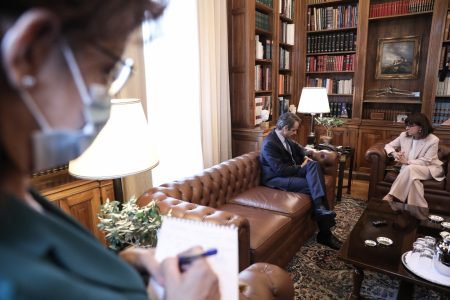By George Gilson
It made perfect sense when the coronavirus pandemic struck and the overarching and paramount aim was (and is) to save lives that the government relied almost exclusively on the advice of a scientific committee of experts.
The Committee is comprised of clinicians and researchers in epidemiology and decides on all the issues and difficult dilemmas by majority vote.
That committee must and will continue to play a critical role in making the tough calls.
The gradual lifting of the lockdown, however, brings into play the entire nexus of the public health, social, and economic relations.
A populace that cannot make ends meet cannot be healthy, nor can tens of thousands of families where the only breadwinner (including one-parent families) will have lost his or her job.
There are mounting fears that rolling schedules and part-time state-subsidised work may become permanent and raze over a century of gains through labour struggles.
That this is being implemented in the hitherto untouchable fortress of the civil service suggests that the private sector will go even further in chipping away at insured, full-time employment and within six months may proceed with a wave of layoffs.
It is already happening in very large numbers.
Given the symbiotic relationship of health and economy in this case (and in general though it was long sidelined) what is needed is an inter-professional committee that could forge cohesive and comprehensive strategies and could for instance be comprised of:
* Two top government economic advisors and ad hoc participation of the finance minister,
* Two virologists/epidemiologists, two pulmonary specialists, two social psychologists, two clinicians (ICU specialist and one more), two psychiatrists, and two constitutional scholars to opine on the constitutionality of the suspension of civil liberties due to the health emergency and its aftermath.
These professions are all involved in the various levels of economic and social recovery and in order to have a balanced transition to normalcy their close cooperation would be ideal.
Such an organ can meet once or twice monthly and will monitor ongoing scientific data and research and discuss the best mix of measures that can restore a sense of normalcy and economic activity while also addressing mental health issues that arise from an imposed, protracted isolation.
If this type of highly organised and targeted cooperation between government and experts (not technocrats per se) had been instituted in 2010 so as to draft a comprehensive plan to rebuild the country’s productive base and garner a consensus for deep reforms of the state then it would have been quite possible for Greece to have put the crisis behind it by the start of 2014 at latest.
That did not happen because partisan instincts prevailed over the need for a national economic reconstruction plan based on a fundamental consensus.
Naturally the said parties were decimated at the ballot box between 2010 and the January, 2015, simply because they forfeited their credibility and were punished by an angry electorate.
In the general election left-wing SYRIZA reaped the benefits and was swept to power (in coalition with the right-wing populist Independent Greeks party).
That opportunity to thrash out a consensus on a national reconstruction plan was squandered before it was even considered.
A decade later the system exhibited admirable maturity in handling the critical initial phase of the coronavirus pandemic. Even Greeks were surprised at their own universal compliance with a lockdown that necessarily curtailed civil liberties in an unwelcome manner.
At this stage which is the gradual opening up of the country much will depend on whether citizens maintain discipline in abiding by both new and already adopted public health measures.
That was the message of the PM’s national address of 28 Apri outlining the phases of the lifting of the lockdownl
The hard trade-offs must be balanced in a rational, comprehensive plan that takes into account all of the complex parameters of jump-starting a society and economy, and that requires an inter-disciplinary approach.


![Σκοτώθηκε 22χρονος σε τροχαίο στην Κρήτη – Η σφοδρή σύγκρουση [εικόνες]](https://www.tovima.gr/wp-content/uploads/2025/01/11/kriti3-90x90.jpg)